Only in Boston
School of hard rock sweeps Boston
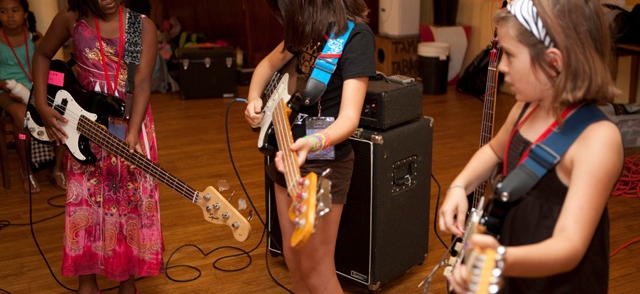
Posted: Thu Oct 03 2013
Boston has long been associated with rebellion, going back as far as a certain Tea Party. Nowhere is that spirit more apparent than in music, where hugely successful bands connected with the city, such as Aerosmith and The J Geils Band, have helped define the international cultural phenomenon known as rock and roll. Now Boston is at the forefront of a new development, where rock’s energy is being captured and transformed into a teaching tool for all ages.
The Harmonix company in Cambridge deserves a strong measure of credit for this development. They fired the first shots in the rock video game revolution with their invention of the groundbreaking Guitar Hero and Rock Band video games, in which the controllers were shaped like instruments. Many kids the world over received their first taste of rock music from these sources. Former-Harmonix executive and current Boston resident Jeff Marshall, who is now Director of Artist Relations and Content Licensing for Realta Entertainment is helping oversee a new phase, a soon-to-be released worldwide game called BandFuse, in which the controllers are actual instruments.
Kids meeting rock through video games
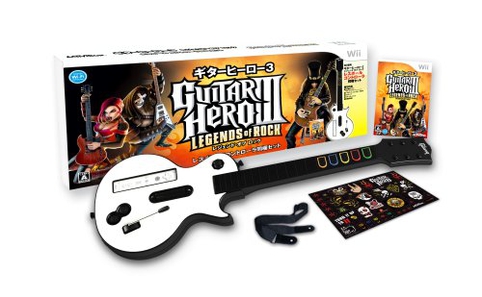
'My three-year-old went from banging on a fake drum kit and playing a fake guitar with Rock Band to wanting to learn to play the real instruments,' says Marshall. 'My kids never got into music until they started playing these games. This new game is going to give kids a real life passion for exploring an actual instrument.'
Techniques covered will include 'shredding' and learning to create solos to backing tracks, all of which will also have the benefits of improving participants' game scores, and leading to the introduction of more interesting music that they likely wouldn’t hear under any other circumstances. 'In the past, the only venues for experiences of that kind were the clubs, the radio, or word of mouth,' says Marshall.
But though readily available on video games, Marshall insists rock remains a powerful force. 'The rebellious spirit is still there,' he says. 'It's just that technology allows us to consume music in a much broader and larger sense. Some of my kids' favorite songs on Rock Band were by The Clash. They didn’t understand what the band was about, but they liked the songs, got into the rhythm.'
The school of Rock
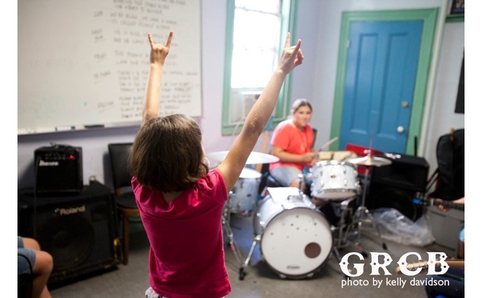
When it comes to teaching rock, there are many Boston-based organisations that focus on kids and adults alike, such as The School of Rock in Watertown, made famous in the well-known 2003 Jack Black film. Some, however, such as Girl’s Rock Boston in Jamaica Plain, use it as a potent tool for personal development, putting a strong accent on the attitude.
'We don’t say "I’m sorry", we say "I rock",' says Hilken Mancini, programme director of the camp, where young girls learn guitar chords, drum rolls and bass riffs, as well as life lessons. 'It’s about finding their voice and feeling strong about who they are,' says Mancini. 'Girls are told to be small and quiet. We teach them: don’t be afraid to be funny, loud and sweaty.'
The camp, part of a national non-profit, pairs up to 60 girls into 12 bands where they have a week to write songs and perform them in a group concert. Along the way, the all-volunteer, all-female staff conducts team-building exercises, workshops, and brings in locally bred rock celebrities such as Robin Lane, Juliana Hatfield and Tanya Donelly of Belly to help out and perform as well.
In addition, the organisation promotes outreach to girls beyond their teens with their winter offshoot Ladies Rock Camp, where some of the bands formed as a result have stayed together and now perform in Boston clubs.
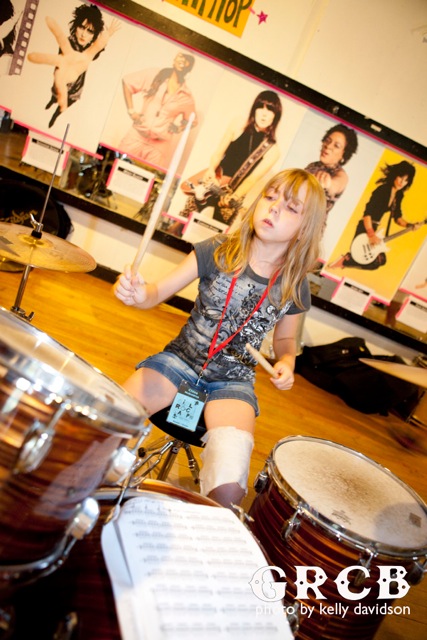
Diane Young, director of Rock Off Main Street at The Center for Arts in Natick works hard to ensure that each girl or boy who straps on a guitar has a place to play. 'What we’ve done is create a whole community of musicians,' Young explains. 'The kids really connect here. They network after the shows.' Young formed the monthly performance event nearly 15 years ago when her son, then in eighth grade, formed a band with friends and couldn’t find performance venues. She went to the local arts center and convinced them to give her a night for high school rock bands. The concept ballooned, and renowned Boston institution Berklee College of Music joined as a sponsor, setting up a monthly showdown in which winners receive summer programme scholarships.
Focusing on the future
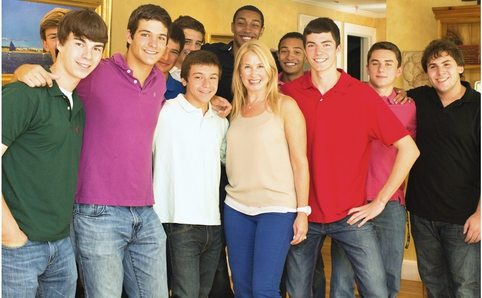
Laura Lamere, creator of the website Pavoh.org for young musicians was also brought into the rock scene by her kids, and as with Young, her interest has outlasted their childhood.
'My son joined a rock band and wanted to get gigs, but it wasn’t easy to find resources,' says Lamere. 'By the time we’d figured it out they were graduating and moving on to different things. I thought other moms and kids might need help.'
Pavoh.org, named after a solar constellation, is a non-profit nexus for New England youngsters playing rock and other forms of music. There is a listing of gigs, scholarships, contacts, local news and career advice, as well as articles on subjects such as songwriting and how to put together a home studio.
'We kept it non-profit because we didn’t want people to wonder why we are doing this,' Lamere says. 'Are we trying to sell something? Are we trying to find the next Justin Bieber?' The organisation has also entered into partnership with the New England Music Awards, which hadn’t previously featured artists under 21.
Phil Chernin, owner of the used instrument store Music Go Round in Natick, is passionate about the ways in which his organisation uses rock music for educational outreach. One of them, the Rockworks programme, helps bands of kids aged 12 to 16 develop original material and perform in front of audiences. 'I can tell you at least one of the kids from the programme was truly transformed,' says Chernin. 'He went from being a child to an enthusiastic musician who now performs live solo and has completely blossomed.'
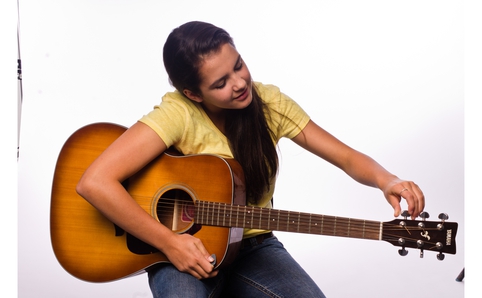
Read more at Time Out Boston
Tweets
- About Us |
- Work for Time Out |
- Send us info |
- Advertising |
- Mobile edition |
- Terms & Conditions |
- Privacy policy |
- Contact Us
Copyright © 2014 Time Out Tokyo




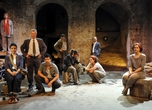

Add your comment